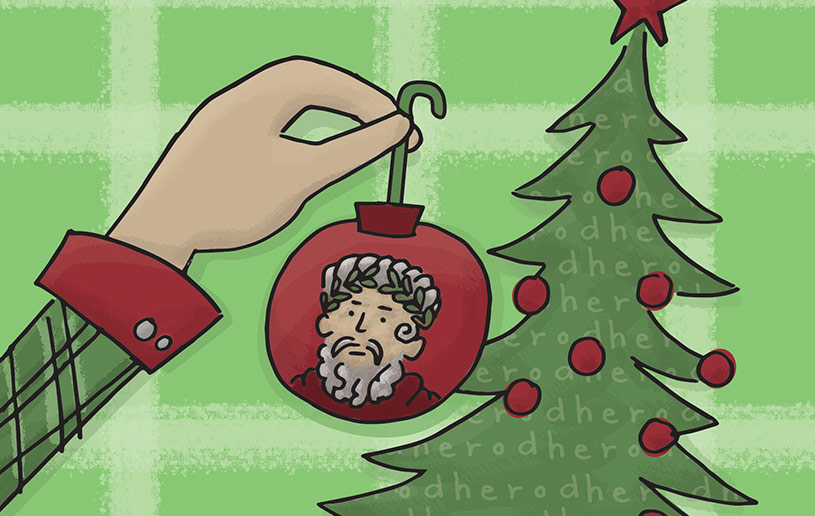
Don’t get me wrong. I love the sights, sounds, and smells of Christmas. And I love that God gave us emotions so we can fully experience the joys of this season. But at the risk of sounding like Scrooge, one danger we easily fall into, especially with the Christmas story, is sentimentalizing Scripture.
Experiencing emotions is one thing. But to sentimentalize something means viewing it with exaggerated and self-indulgent feelings of tenderness, sadness, or nostalgia. We do this with the Christmas story when we emotionally idealize it. It’s about Jesus, a cuddly, cute baby with a warm glow about Him set in an idyllic barn with quaint shepherds nearby. It’s about food, family, and giving gifts. What could be better? Where’s the danger?
When we sentimentalize the Christmas story we trivialize it. Unquestionably, family and giving gifts are good things. But these are things we have imbued into the story. If we think that is what the Christmas story is about we have seriously missed and minimized the meaning of Jesus’ birth. It was an event of eternal, cosmic proportions, not something to be reduced to a sentimental excuse for all kinds of excess.
Our sentimental approach to Christ’s birth sanitizes the event to the point where we re-cast the story for palatability, nostalgia, and commercial manipulation. We select the charming and the cute, separating Christmas from its true and gritty elements. It takes on the qualities of a fairy tale. But treating it that way distorts and dilutes the impact God intended it to have. We lose touch with the crisis that Christ brings to our society and to our lives and ultimately, why He came.
Another danger of sentimentality is that we tend to avoid the parts of the story that are not so comfortable. We smile at the cozy nativity scene, but have you ever spent a night in a stable or given birth in a barn? The reality is very different. Some scholars suggest that in Luke's account it's not just that the inns were full but that Mary and Joseph were forced to take the stable because their family had rejected them.
Joseph had relatives or friends of relatives in Bethlehem. Rather than receiving hospitality by family or friends, Joseph and Mary are shunned. Family and neighbours declared their moral outrage at the fact that Joseph showed up on their doorsteps with his pregnant girlfriend.
This gives us clues to the destiny of the child whose birth we celebrate. He was born an outcast, and his life ended similarly. The crib is a pointer to the cross. When we romanticize Christmas, or say it’s only for children, we lose sight of its deep liaison with the Resurrection.
Sentimentalizing Scripture can often cloud our thinking or cause us to avoid understanding truth. Christ’s birth story also includes the horrific slaughter of babies by Herod. He recognizes something about Jesus that in our fog of sentiment we either minimize or fail to see—that the birth of this child is a threat to his kingdom, a threat to that kind of domination and rule. Jesus challenges the very power structures of this evil age. So Herod has all the male infants in Bethlehem murdered. The babe in the manger is the Messiah who entered the bloody history of Israel and the human race.
Herod represents the dark side of the Gospel. He reminds us that Jesus didn't enter a world of spiritual fuzzies. Jesus entered a world of real pain, serious dysfunction, brokenness, and political oppression. Jesus was born an outcast, a homeless person, a refugee, and finally a victim. Jesus is the Saviour of outcasts, refugees, and nobodies.
There’s a real danger that, faced with the anguish of our world, we’ll use the sentimentality of Christmas to anaesthetize ourselves. In doing so, we fail to understand the pains and agonies of where Jesus was born, lived, preached, and died.
The danger of sentimentality is always real and we need to proceed with caution. “So the Word became human and made his home among us” (John 1:14) is a deep mystery and truth; it’s earthy, rooted in reality, deeply human, deeply divine, and far from sentimental.
Can we separate sentiment (emotion) from sentimentality (emotional indulgence)? Yes, if we stay rooted in the biblical text. Let the Bible be your guide and the source of truth with which your mind and emotions engage this season.

